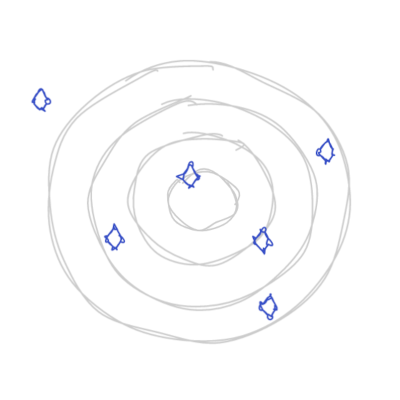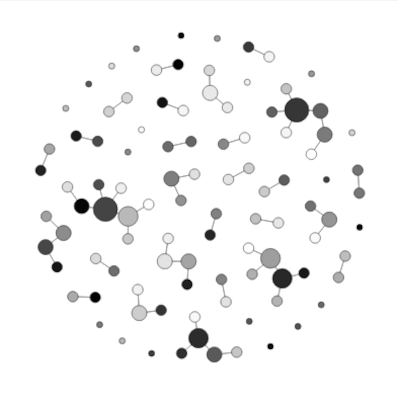Accordance Dialogues
DAOS are permeable, often permissionless places. Many are extremely noisy environments.
On one hand, it’s good to be open and make things accessible to new joiners. But when there is no Defenders’ Advantage for the people doing to the work, it’s like going to work in a flashmob everday.
There are many cases of burnout and overwork. People feel a lot of fomo. It’s hard to take a day off, or miss a meeting, since it’s likely you’ll miss a decision that affects you meaningfully.
Different strategies are emerging to address this, mostly around creating gates, or barriers-to-entry, for people to join different groups.
Token Curated Registries (TCRs) are often used in workgroups, only allowing new collaborators to join if the existing members vote them in. Many investment DAOs do this to ensure all members are qualified and committed.
Squads only select members who have the necessary skills and commitment to see a specific project to its outcome.
Multisig wallets delegate power when the experts are needed, like research, math, simulation.
For example, Gauntlet does sophisticated simulations for protocol optimisations for protocols like Compound and Aave. They gain access to make on-chain protocol changes though a multisig committees, including their mathematicians, other experts and trusted delegates within the protocol governance. This allows them to impliment expert decisions without needing to educate the DAO about all their superbrain thinking, and avoid putting complex and difficult explanations to vote very time there’s something technical to implement.
Multisig effectively moves decision-making power to a small trusted group who can then coordinate off-chain.
Airdrops pre-seed a DAO with qualified members.
Some focus on people with experience using their own protocol. ENS, Aave and Uniswap all airdropped governance tokens to their users, seeding their governance with the people most affected.
Airdrops can also qualify people in broader ways.
For example, GasDAO’s airdrop only allowed addresses that had paid more than $1500 in gas, seeding the initial group to people with a certain level of Ethereum mainnet experience.
The simplest and most common way is for a group to self select, and open a private chat or forum between them. Most technical and development teams of blue chip protocols run their own private Slack channels and forums.
Generally, these all tend to employ some version of the following:
Most fundamentally, they create their own culture within their small group, and they draw a line between them and the outside, rejecting outside influence to make space for their specific collaboration to work best.
The end result of all of these practices is to create communication spaces that are higher quality by filtering for qualified members. This allows workgroups to defend their workspaces and momentum from interlopers.
And it allows stewards, such as treasuries and governance bodies, to be more transparent. By creating channels where only they can write, but others can view, they create a place where their signal cuts through the noise.





